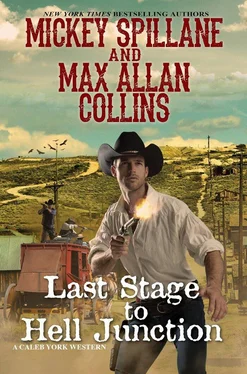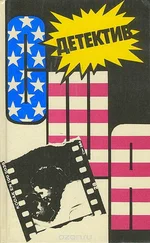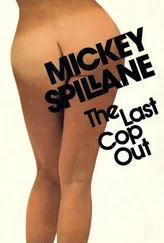These days, the sheriff — tin star tucked in a shirt pocket — could take the evening off. Right now he was sitting at a round, green-felt-topped table with a quartet of merchants, all of whom sat on the Citizens Committee, as well as at this table’s weekend poker games.
The Victory remained the only watering hole in town, in part because Trinidad, with its population of three hundred or so, didn’t require any more; but with all the ranches in the area, and for thirsty travelers on their way to Las Vegas, New Mexico, the Victory presented a palace where the customer was king.
From the towering embossed-steel ceiling hovered kerosene-lamp chandeliers, their flicker dancing off the gold-and-black-brocaded walls, saddles and spurs riding there as if deposited by bucking broncos. Those flames high above also reflected off the endless, highly polished oaken bar, in back of which ruled a quartet in white shirts and black bow ties.
Behind these bartenders — bottles of bourbon and rye lined up like soldiers ready to do their duty — mirrors made the chamber seem even bigger. Dusty cowhands hugged the bar, where towels dangled for patrons to wipe foam off mustaches; elbows rested on the counter supporting hefty mugs of beer, while one boot per customer hooked on a brass footrail punctuated by occasional spittoons.
Though tables for drinking men were clustered to the right as you pushed through the batwing doors, most of the cavernous enclosure was a casino, bustling with already well-juiced cowhands getting rid of their paychecks at dice, roulette, chuck-a-luck, and wheel-of-fortune stations. At the far end of the chamber, on a little platform, a piano player was providing lively rinky-tink noise for a tiny dance floor crowded with pairs of rough-hewn cowboys and silk-and-satin dance-hall gals, males and females paired off for some herky-jerky cavorting.
To one side of the tables where patrons sat drinking, and before the casino asserted itself, were a pair of gaming tables. House dealer Yancy Cole, a former riverboat gambler who still dressed in that manner, had a faro game going. The other table of York and four local city fathers was provided as a courtesy with no house dealer, or cut of the winnings going to the Victory. The pair of tables was positioned near the stairway that led up to the second-floor quarters of Rita Filley, owner and manager of the Victory.
Under the prior owners, one of whom was Rita’s late sister Lola, the upstairs had been a brothel. But the sheriff had convinced Rita to restrict her girls to encouraging, by way of dancing and flirting, the purchase of drinks.
That wasn’t to say that every fallen angel had gotten herself up, or that each soiled dove was, strictly speaking, clean now — but any girls with customers of their own serviced them elsewhere. A particular rooming house was home to nothing but girls who worked at the Victory — not exactly a brothel, as not all the girls entertained “male friends,” and no madam was on the premises.
Caleb York knew human beings were flawed animals, and that certain things found intolerable by some needed to be tolerated by the rest.
Right now York was looking at three aces — also a deuce of clubs and a ten of diamonds, but those he would discard on the draw. Very good hand, particularly in this company, who were not as card-smart as the sheriff, who himself had a bit of a riverboat gambler look to him.
Like the Earp brothers, Bat Masterson, and other law officers of the 1880s, York dressed as a professional man — black coat, black pants snugged in black hand-tooled boots, shirt a light gray, string tie black. Even seated here, he kept on the black hat with a cavalry pinch and gray-knotted kerchief at his neck.
He wore his Colt Single Action Army .44 low on his right side, and usually kept it tied down — at the card table, though, he let it hang loose. A weapon falling to the floor and discharging could be taken the wrong way.
Big but lean, rawboned, firm-jawed, his hair reddish brown, York wore a full-face beard, though in the past he’d either been mustached or clean-shaven. He was squinting at his cards with those seldom-blinking, washed-out blue eyes, but truth be told, that squint was his normal expression.
As Friday-night rowdy as the Victory was, Trinidad had been fairly peaceable, the big trouble lately a rabid dog he’d had to shoot — a canine one, for a change. January in New Mexico had been just cold enough — down around ten degrees some nights, edging no higher than forty degrees by day — to keep things quiet. That was how Sheriff Caleb York liked it; it was the winter chill that encouraged his beard, though he had the town barber keep it trimmed back.
After eight months or so in Trinidad, York was a well-established part of the little community. He’d rolled into town a stranger, on his way west to take a job with the Pinkertons in San Diego. He had been enjoying an anonymity from the false impression the world had that celebrated shootist Caleb York had met his match, gunned down in the street some months back.
With the age of forty looming, he’d decided being a live nobody was better than being a dead somebody.
And, anyway, he disliked his reputation as a notorious gunfighter. Yes, he’d taken down more badmen than most, in street fights, rural shoot-outs, and lowdown ambushes he’d survived. But that had been in his former and very legal role as a detective for Wells Fargo. He couldn’t help it if the dime novelists like Ned Buntline had turned him into a damned storybook hero — a legend! Didn’t people know that the definition of a legend was something that wasn’t real?
Yet a pretty gal named Willa Cullen and the fine old rancher who had been her father, the late George Cullen, had managed to get him embroiled in taking down Trinidad’s corrupt sheriff, Harry Gauge. And now, instead of working in the big city for the Pinks, he had allowed himself to be seduced by a pretty face and a Citizens Committee into taking over for that now-deceased crooked lawman.
As it happened, his romance with Willa had gone cold — though he sensed signs of rekindling — but that Citizens Committee had not only matched Pinkerton’s offer, but thrown in some incidentals to boot. Thanks to the mayor’s political connections, he was county sheriff, as well as the town’s lawman, filling a marshal’s role unofficially
And now the Santa Fe was about to bring a spur to Trinidad that would surely make the town boom, which made staying on as sheriff a profitable prospect.
At the table with him were four of Trinidad’s most respected citizens: Dr. Albert Miller, druggist Clem Davis, mercantile store owner Newt Harris, and Mayor Jasper Hardy, the barber who kept York’s beard at bay. Doc Miller, perhaps York’s best friend in town, was dealing the cards, and was about to go around the table learning who wanted how many new ones.
But before that could happen, a figure who would have been unrecognizable a few months before, came hustling over to the table, saying, “Sheriff! There ye be!”
Skinny, bowlegged Jonathan Tulley, who had once been the town’s bedraggled drunken sot, was now York’s deputy. The old desert rat had sobered up, but his attire — baggy canvas pants and a dirty BVD top — had for months remained much the same, as had his reputation as town character.
Now, encouraged by the sheriff to clean himself up into a real deputy, Tulley sported clothes both store-bought and clean — dark flannel shirt, red suspenders, gray woolen pants, and work boots. His thinning white hair and once-bushy beard indicated he, too, was frequenting the mayor’s tonsorial parlor.
He still had the habit of waving his shotgun in one hand, like an attacking Indian brave, but these things took time, York knew.
Читать дальше





![Микки Спиллейн - Death of the Too-Cute Prostitute [= Man Alone]](/books/437201/mikki-spillejn-death-of-the-too-thumb.webp)